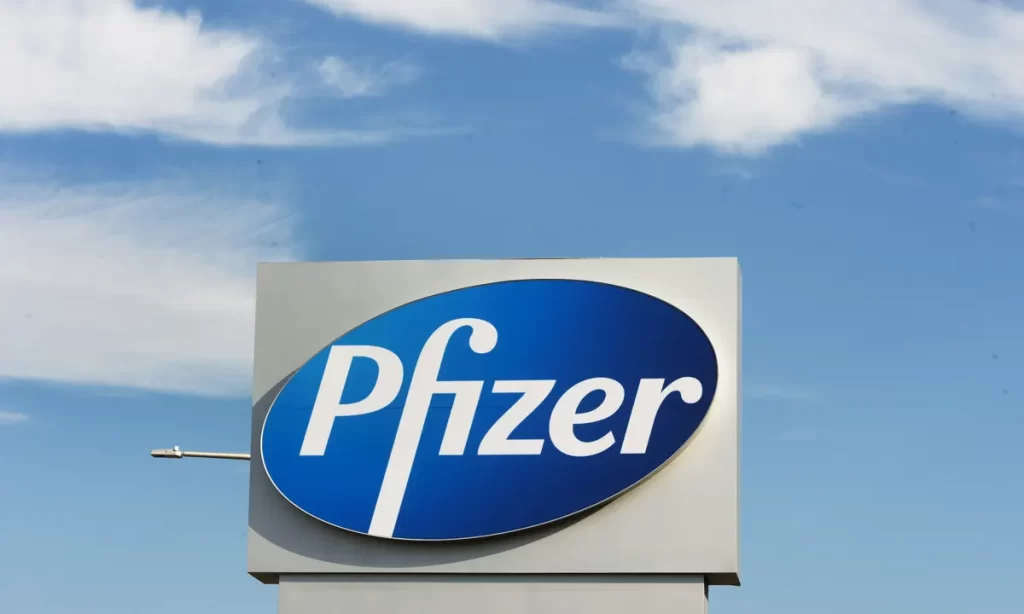Pfizer (PFE) stock, which peaked in December 2021, has now fallen for two years as the drugmaker looks for its next big break after developing the first Covid vaccine with Germany’s BioNTech (BNTX).
Notably, Pfizer wrapped up its $43 billion acquisition of cancer-focused biotech Seagen in December. The deal centered on Seagen’s expertise in antibody drug conjugates, or ADCs, targeted means of sending chemotherapy directly to tumor cells, thus limiting their damage to healthy tissue. The space heated up in 2023 after Pfizer announced its takeover plans.
A day after completing its Seagen buyout, Pfizer announced that the Food and Drug Administration approved a combination of its new drug, Padcev, with Merck’s (MRK) Keytruda for patients with advanced bladder cancer. Padcev was Seagen’s second-biggest moneymaker. The FDA is also reviewing another Seagen drug, Tivdak, as a potential treatment for cervical cancer.
Pfizer also declared a 42-cent dividend for the first quarter. This represented Pfizer’s 15th year of consecutive quarterly dividend increases, Chief Executive Albert Bourla said in a written statement.
But on a bearish note, Pfizer issued a disappointing outlook for 2024 amid expected and continuing declines for its Covid vaccine and oral treatment. For the year, the company expects $58.5 billion to $61.5 billion in sales, including Seagen’s contribution. That includes a combined $8 billion from the Covid shot, Comirnaty, and the oral treatment Paxlovid. The guidance missed expectations.
Pfizer also recently submitted its request for approval of a hemophilia A and B treatment in the U.S. and Europe. In Phase 3 testing, that drug reduced annualized bleeding rates by 35% and 92% vs. routine preventive treatments for people with hemophilia A and B, respectively. The company also gained approval in Europe for a new multiple myeloma drug, Elrexfio.
But Pfizer also scrapped development of a twice-daily treatment for obesity, an area where it trails Novo Nordisk (NVO) and Eli Lilly (LLY) distantly. Pfizer Stock Fundamentals: Surprise Profit
For the fourth quarter, Pfizer reported an unexpected profit of 10 cents per share, minus some items. That flipped expectations for an 18-cent loss per share. Earnings tumbled 91% year over year. The profit was due to better-than-expected gross margins and low research and development spending.
Sales also plummeted 41% to $14.25 billion and missed forecasts for $14.37 billion. Excluding the impact of Covid products, vaccine Comirnaty and oral antiviral Paxlovid, sales climbed 8% operationally. give me a title for instagram post with this text
In addition to the expected declines for Comirnaty and Paxlovid, revenue from pneumococcal vaccine Prevnar slipped 8% to $1.61 billion. That widely missed projections. Sales from cancer drugs Ibrance and Xtandi also came in light.
On the flip side, revenue from blood thinner Eliquis and Vyndaqel beat expectations. Vyndaqel treats a condition in which abnormal protein builds up on the heart. Sales climbed 41% to $961 million. Eliquis, which was developed in partnership with Bristol Myers Squibb (BMY), brought in $1.61 billion in sales, up 9%.
For the first quarter, Pfizer stock analysts forecast earnings of 55 cents per share and $14.47 billion in sales. Earnings would dive 55% as sales tumble 21%.
Investors are encouraged to seek stocks with 20%-25% recent sales and earnings growth. Pfizer is not hitting those marks. Big institutional investors — who account for up to 70% of all market trades — usually look for stocks with accelerating earnings and sales growth.



